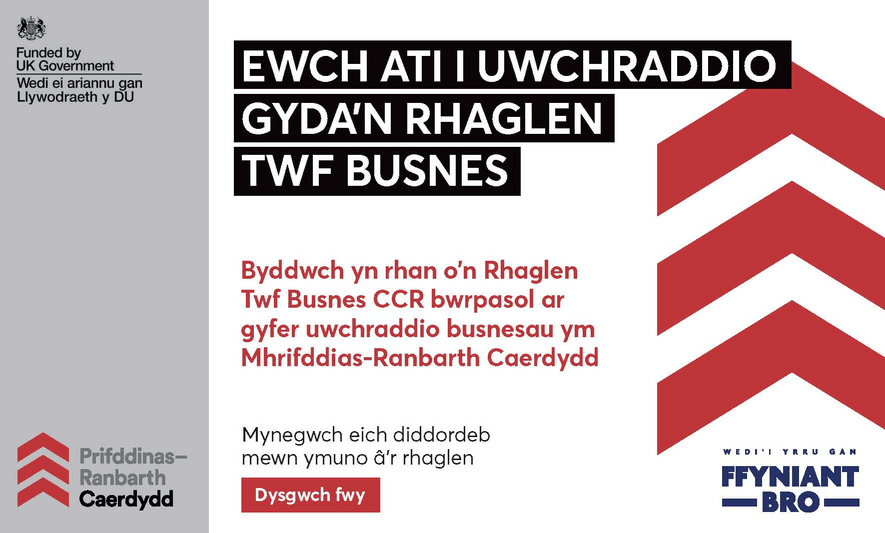 Leigh Hughes, Chair of the Cardiff Capital Region Skills Partnership and Corporate Social Responsibility Director of Bouygues Construction, was speaking to Mark Powney.
Leigh Hughes, Chair of the Cardiff Capital Region Skills Partnership and Corporate Social Responsibility Director of Bouygues Construction, was speaking to Mark Powney.
Please give us an overview of your background and the roles and responsibilities you have in Cardiff Capital Region.
I’ve been working in the construction industry in South Wales and the rest of the UK for over 30 years. I’m now the corporate social responsibility director for Bouygues Construction in the UK, it’s a global company but we operate in the UK with £1.5 billion worth of activity and employ 4,500 people.
I’m chair of CITB [the Construction Industry Training Board] in Wales, and I’m also chair of the Cardiff Capital Region’s Skills Partnership, which feeds into the CCR Regional Cabinet, and into Welsh Government through the Employment and Skills Board and the Council for Economic Development.
How do you juggle all that, how is your work-life balance?
Actually it’s fine; we’ve got some really good staff. But also, I’d reached that point where I felt that my career was a day release. I didn’t go to university and I was mentored and developed into not a bad career and one I’m very grateful for on a daily basis, but I think people like myself should give a bit back to our local area, so it’s important to me that I made time in my calendar to make a contribution to the economy that helped me get where I am. I want to make sure everyone gets given the same opportunity I’ve had.
Many businesses now face the prospect of having to make redundancies. How severe do you think the impact will be in the CCR?
I think we’re going to see an increasing amount of redundancies and closures. Each of our priority sectors is experiencing different challenges, but also different opportunities. Our employers in compound semiconductors, for example, they started having one or two issues but they’re back pretty much to business as usual, and they’re not going to be hit as hard as construction and advanced manufacturing materials, for example.
So the sectors are going to be hit in different ways and to different levels. We’re working closely with them to understand what those challenges are and what the potential outcomes are going to be.
Highly skilled, motivated young people will be crucial to rebuilding the UK economy. Is there sufficient dialogue and strategic focus within the CCR on the importance of skills for the recovery?
The Regional Cabinet and the leaders and chief executives of the 10 local authorities have from the outset pre-Covid seen that skills are of prime importance. Covid has highlighted that and we’ve made it a key focus of the role of CCR and Welsh Government, because we work collaboratively with them on this.
It’s about making sure that skills are key to the recovery and making sure employers and individuals don’t see them as low priority. We have to put foundations in place that allow people and businesses to grow again when the opportunity arises.
We’ve seen some incredible examples of adaptation and diversification. What would you like to see us learn from this so we can build a more resilient and future-proof workforce?
What we’ve seen from our engagement with employers across the sectors is that many businesses have become innovative and dynamic. We have to capture all this innovation and best practice. If we’re going to compete as a region we have to collaboratively share best practice.
People with transferable skills might need some additional training that allows them to jump from one sector to another. We have to look at the versatility of our workforce, young learners and more mature ones, to see how we best provide them with a foundation they can transfer from sector to sector, leading to full employment and growth.
Skills are the cornerstone of that. We have to be, now more than ever, collaborative and communicative in how we capture and share the learning from this period, because that will make us more resilient as a region.
There have been some unique challenges to skills development, especially in the world of apprenticeships and vocational training. Can we expect to see a shift from more academic skills and courses to more practical, apprenticeship-based approaches?
We’ve started to see that anyway. The work that the NTFW and Colegau Cymru, and HE institutions, are doing are all part of the Regional Skills Partnership. The achievement of academic skills is vital up to the age of 16, but post-16 it’s about learner vocational choice.
Even though these are tough times, apprenticeships are still being talked about and asked for. We’re looking to see an expansion of apprenticeships across different sectors, and degree apprenticeships and higher apprenticeships.
We’ve got some excellent examples in the region of shared apprenticeships. That’s something CCR are looking actively to pursue over the next 12 months.
We’ve seen some remarkable collaboration across the public and private sector boundaries. Is there more we can do to ensure the pivotal role skills needs to play?
The role of the RSP and the colleges and universities and work-based learning institutions is crucial. There’s an appreciation in business that in times of challenge, allocating funds towards skills and training is perhaps not the highest priority, it’s more about business survival. The Government needs to work with business and industry and I’m seeing that improving year on year. Everybody’s working collectively because together we become a better proposal for inward investment.
What is the Regional Skills Partnership focused on now to ensure it adds the most value?
We launched a 3-year plan just before Covid. Sometimes the process of bringing in new skills takes up to 18 months to get into the system, so you don’t start to see outcomes for 2-3 years. One of the things we’ve done, working with the region and Welsh Government, is refocus our efforts for the next 12-18 months, capturing the current predictions. We’ve shared that with all our partners, and the team in the office are doing a superb job.
Transferable skills are going to be important to allow people to transition from one sector to another.
Fast forward 12 months, what would you hope the Skills Partnership would have achieved?
If we can look back and say we’ve done the best we can, we didn’t have any shocks, and everybody worked together as one team, that’ll be a good place that I’d be happy with. We don’t want to be in a position where we’re saying, if only we’d done this.










